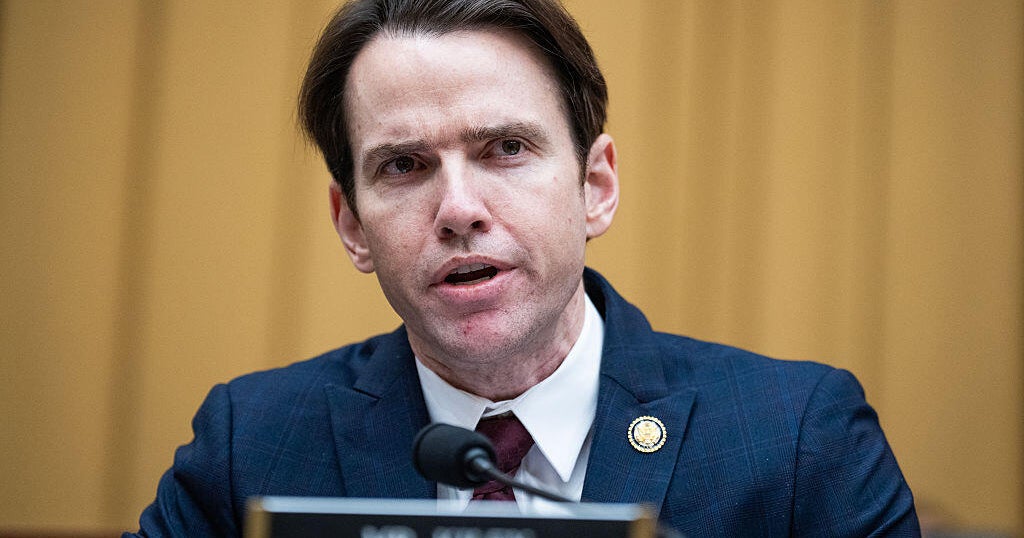Can Rep. Chris Collins keep his seat while he's being indicted?
New York Rep. Christopher Collins was indicted by federal prosecutors on charges of insider trading Wednesday. Collins, his son and the father of his son's fiancee were charged with conspiracy, wire fraud and other counts. The congressman allegedly helped his son make illicit stock trades by revealing inside information about Innate Immunotherapeutics Limited, an Australian biotechnology company of which Collins was a board member.
Collins is hardly the first sitting member of Congress to be indicted. And like many others before him, he is choosing to remain in his seat and run for re-election despite the charges. Here is a guide to what being indicted means for Collins' political future.
Collins can stay in Congress while he's under indictment
There is nothing in the Constitution that disqualifies someone who is indicted on federal charges from serving in Congress. And he could still remain in Congress even if he's convicted.
There are only three requirements for a person to be qualified for election to Congress: they must be 25 years old if serving in the House and 30 if serving in the Senate, they must be a U.S. citizen for at least seven years, and they must live in the state where they were elected.
A person can even technically run and serve in Congress from prison. In 1798, Vermont Rep. Matthew Lyon, who was imprisoned for violating the Alien and Sedition Acts, won re-election from behind bars.
Both houses in Congress can vote to expel members with a two-thirds majority. Historically, conviction of a crime hasn't resulted in the expulsion of a member of Congress, perhaps because many representatives resign if they are convicted. The majority of expulsions occurred during the Civil War, when the House and Senate removed members who supported secession.
Members of Congress who have been indicted on federal charges
The Washington Post reported in 2015 that there had been over two dozen members who had been indicted since 1980. Some notable indictments include --
The Abscam scandal, 1981: Seven congressmen were indicted on charges of conspiracy and bribery after an investigation where FBI agents posed as Arabs seeking political favors. All were convicted, and either resigned, lost re-election or were expelled.
Sen. Kay Bailey Hutchison, 1993: Texas Republican Hutchison was indicted on misdemeanor and felony counts alleging she used state employees to conduct political and personal business. Hutchison was acquitted and served in the Senate until 2013.
Rep. Tom DeLay, 2005: Republican House Majority Leader DeLay was accused of conspiring to affect state legislative races in Texas with illegal corporate contributions to candidates. He resigned from Congress in 2006.
Rep. Michael Grimm, 2014: The brash Republican from Staten Island was indicted on 20 counts in connection with a Manhattan restaurant he ran. He then won re-election while under indictment, although he pleaded guilty to tax evasion and resigned from Congress later in 2014. He served eight months in prison. Grimm launched an unsuccessful primary bid for congress this year.
Rep. Chaka Fattah, 2015: Fattah, a Pennsylvania Democrat, was charged with mishandling money. He remained in Congress for a year while under indictment, but resigned after he was convicted under pressure from House leadership.
Sen. Bob Menendez, 2017: The New Jersey Democrat remained in office as he fought federal corruption charges for over a year. The original trial for Menendez ended in a mistrial in 2017, and a judge acquitted him of several charges in January 2018. The Justice Department later dropped all charges against him.
Collins still has a good chance of winning reelection
Although it's never wise to predict any election result with certainty, Collins is still probably going to win. New York's 27th Congressional District is solid Trump country; it voted for President Trump by almost 25 percentage points in 2016. Collins won his race by 35 percentage points in 2016. Redistricting in 2012 made the district even redder than before.
Collins' Democratic opponent, Nate McMurray, is not exactly a household name in the district. He's also not even the preferred candidate of the state party; Gov. Andrew Cuomo made it clear earlier this year that he wanted his lieutenant governor, Kathy Hochul, to run against Collins instead. Hochul won the congressional seat in a 2013 special election, and then lost to Collins in 2014. She declined to run against him this year.
Collins was the first member of Congress to endorse Mr. Trump. He also has somewhat of a Trumpian political style. If he is able to convince loyal constituents that the charges against him are little more than a "witch hunt," he may be safe. (A spokeswoman for Collins called a House Ethics Committee investigation into the congressman's finances a "witch hunt" in 2017.)
Unless Collins gets convicted before Election Day - which may difficult, as he is due to appear in court next in October - he is easily the frontrunner in the race.



